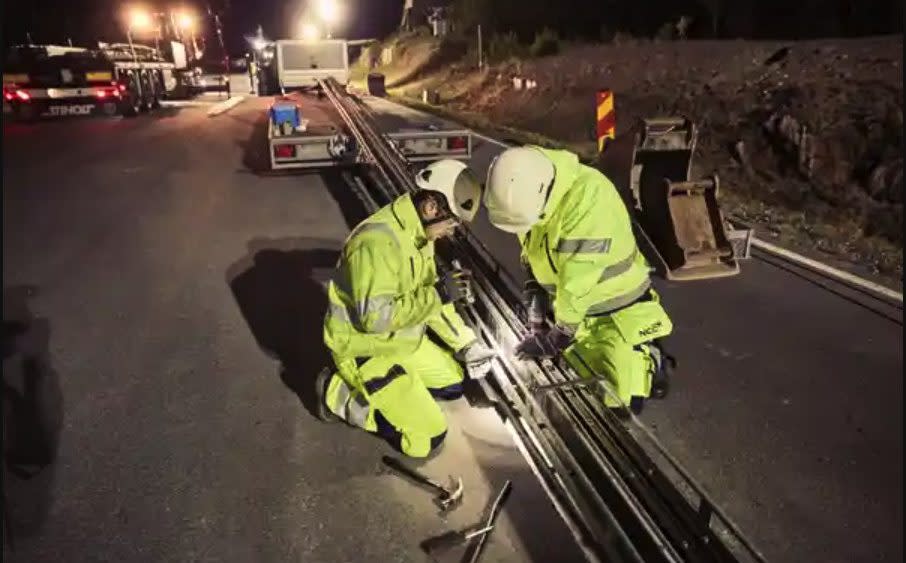Sweden plans to build world’s first electrified motorway

Sweden has announced plans to build the world’s first electrified motorway, allowing electric cars to charge themselves as they pass along its surface.
The e-motorway, which is due to be completed in about two years, is part of wider efforts by Sweden to decarbonise the transport sector in response to a new EU law that requires new cars to have zero CO2 emissions from 2035.
A major benefit of the road could be sparing electric vehicle users the annoyance of having to locate and wait at charging stations, as in theory the road can provide all the required power.
The announcement was first reported by the Euronews website, which noted that Sweden has piloted similar schemes before, though this one appears to be the most ambitious so far.
Sweden’s transport administration plans to convert the E20 motorway, which is in the middle of three major Swedish cities: Stockholm, Gothenburg, and Malmö.
“We think the electrification solution is the way forward for decarbonising the transport sector and we are working with a number of solutions,” Jan Pettersson, a director at the Swedish transport administration, told Euronews.
Three ways to electrify road
Officials have not yet decided which method of charging will be used on the electrified road, though they have three options to pick from.
The first is the catenary system, which uses overhead wires to provide power to cars on the road, which would be most suitable for buses or trams.
An inductive system, the second option, buries equipment underneath the road which sends power to coils fitted to the electric vehicle, charging the vehicle as it passes along the road.
Thirdly, the road could rely on conductive charging where electricity is sent wirelessly to a metal plate on the electric vehicle, not unlike charger pads for mobile phones.
Challenge with heavy vehicles
Mr Pettersson said a big challenge created by the shift to electric cars was that heavy-duty vehicles can be tiresome and impractical to keep charged.
“If you are going to have only a static charging full battery solution for heavy-duty vehicles, you will get vehicles with a huge amount of batteries that the vehicles need to carry,” he told Euronews.
Sweden has already led a number of pilot projects in its mission to decarbonise cars and road infrastructure. In 2020, a wireless electric road for trucks and buses was set up in Visby, on the island of Gotland.
A 2019 report by the Israeli financial newspaper Globes said the road covered a 4.1km (2.5 mile) stretch between the city of Visby and a nearby airport. That electrified road was set up by ElectReon, an Israeli tech firm that specialises in wireless charging for vehicles.
Earlier, in 2018, the Guardian reported that a 2km (1.2 mile) stretch of electric rail was fitted to a public road near Stockholm as part of a similar pilot exploring the effectiveness of roads that can charge cars.
The technology appears to still be at a relatively early stage, and it was not immediately clear if Sweden’s latest project would also focus on buses and trucks, or has the more ambitious goal of being suitable for standard cars.
Pilot scheme in France
It emerged over the weekend that France is also exploring an electric highway for lorries which aims to be completed by 2026 and will rely on overhead wire charging.
The pilot scheme could open the door to a system where trucks rely on a mix of electrified roads and electric batteries stored on board to get them across their routes.
However, some experts have warned that the pilot schemes in France, Germany and Sweden have already shown that electrified roads could be a very expensive project.
According to Les Echos, a French business newspaper, the cost of electrifying around 9,000km (5,500 miles) of the country’s roads would cost around 35 billion euros (£30 billion).

